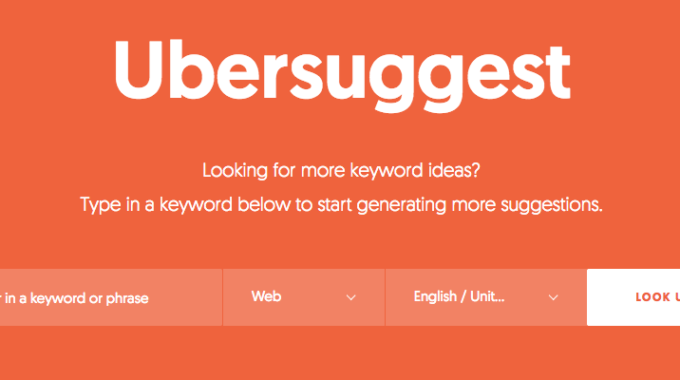
SEO Vs. SMM: What Makes Your Website More Searchable For Users?
Adjusting your website for Google’s search engine algorithms can be a tricky affair. The same can often be said about marketing your products and services on social media platforms such as Facebook, Instagram and LinkedIn.
Based on global population, the percentage of internet users is estimated to grow up to 53% by the year 2021. This is a huge potential market which you can tap into if you choose your advertisement tools correctly. With such a wide gap in between these marketing methods, content creators are frequently left confused as to how to move forward.
SEO and SMM carry very different methodologies and benefits as independent marketing strategies. Let’s take a look at what makes both of them tick and how, in the end, you can make your website more searchable for the specific audience you are looking for.
What is SEO?
Search Engine Optimization (SEO) represents the process of optimizing online content for search engine ranking. Internet users use several browsing applications as well as different operating systems on their computers and smartphones.
Each of these devices uses the same search algorithms provided by Google as the trendsetter for SEO. This makes it obvious that you should use Google’s tools to optimize your content regardless of the platform you post on.
You can create blog posts on your company website, create advertisement material and post it on popular networks or opt for YouTube and other multimedia content platforms. No matter what type of content you choose to publish, you must be aware of the SEO trends currently surrounding it.
To make matters worse, SEO trends vary depending on the industry you are targeting. It’s not the same to target writers and legal experts with your content. A clear customer profile and product lineup is necessary if you want to reap the benefits of SEO to its fullest.
What about SMM?
Social media marketing (SMM) represents the process of marketing your content through social media platforms. Website such as Facebook, Twitter, Instagram and LinkedIn (to name a few) are the most popular platforms in that regard.
Advertisement through social media channels is far different than technical SEO of your content. For one, you are required to create representative social media pages on each platform before you start publishing your content.
Alternatively, you can opt for paid advertisement and rank your content according to each platform’s demographic data. You can also localize your content for international audiences. Since social media platforms are a global phenomenon, this might be the secret ingredient you need to break through to new markets.
This can be a fast and easy way for companies to establish industry presence if they have the funds available for paid SMM. Startups, small businesses and individual content creators can choose to publish their own SMM content on personal pages. Both strategies work and are viable for creating website traffic and subsequent sales.
The question remains however – what are the benefits and detriments of these marketing methodologies?
Pros and cons of SEO
Pros
- SEO provides organic traffic
Since SEO works in conjunction with global search engines, it provides your website with organic traffic. This means that people who “Google” for anything they might need can stumble onto your website directly. This is the “cleanest” way of approaching new customers since it doesn’t involve paid ads or artificial marketing.
- SEO provides more visibility and authority
No matter what industry you work in, chances are that you have competitors. Optimizing content through SEO can make your website more visible and competitive among the rest. This is a great way to place your site into the ring of high profile industry experts.
Cons
- SEO doesn’t provide immediate results
If you are looking for a quick way to earn some exposure, SMM might be a better option. SEO is a long game of content optimization and SERP ranking with other sites in your niche. It requires constant curation and attention to site formatting. If you don’t have a web designer or a content manager available 24/7, tread carefully with SEO.
- SEO doesn’t bring results 100% of the time
Imagine a list of top 10 websites in your niche. Now imagine that there are 11 websites in total. In any given moment, one of those sites will be completely invisible to an untrained eye. This is something that often happens with SEO since Google’s (and other) search result pages can only display as many sites at once. It can be very easy to lose your ranking even though you spend so much time and effort in creating competitive content.
Pros and cons of SMM
Pros
- Social media is your customers’ home
Everyone on the planet uses some form of social media in their spare time. This is what makes SMM so lucrative for companies willing to invest in it. It can be very easy to approach new audiences and for them to spread the word about your brand to their friends and networks. Social media platforms are the de facto way of approaching any customer profile which you may have in mind for your website.
- Low cost, high RoI
It doesn’t cost a lot to set up several social media pages and start posting content. After all, the Return on Investment (RoI) on your content marketing is what constitutes as success in the end. You can create company pages on popular sites such as Facebook and Twitter free of charge and start advertising. Not only will you “buy” your way into potential customers, you will also get free exposure through that platform’s ad algorithms.
Cons
- Risk of bad publicity
Situations can get out of hand fairly quickly in SMM. Due to such a varied audience, it can be quite easy to accidentally offend someone. Keep in mind that social media platforms are global – people of different ages, religions and beliefs have full access to them. If you dip your toes into SMM, make sure that you are backed up by solid research.
- Decentralized content management
Social media pages are rarely managed by a single person. The volume of comments, direct messages and audience interaction is too much for one person to handle. This can lead to a loss of brand authority if you choose to hire multiple social media managers. While this can be alleviated by training them accordingly, you can only do so much to ensure that five or six people are on the same page.
Main takeaways
Now that we have a clearer understanding of SEO and SMM, let’s take a look at what we have learned in short:
- SEO uses keywords and Google’s search algorithms to rank websites
- SMM uses social media platform’s specific algorithms to attract potential users to you
- SEO is a long-form advertisement method and doesn’t bring quick results
- SMM can bring results fairly quickly and give your brand a voice
- SEO often depends on “the time of day”, meaning that trends shift quickly and drastically
- SMM depends on the type of content you publish and the way you interact with your users
Drawing the line (Conclusion)
The choice between SEO and SMM falls down on the type of audience you are trying to reach. Younger demographics tend to use social media platforms more often than search engines. Older demographics are prone to search for content through search engines and lean on corporate, professional content.
Make sure that you are clear on the type of user base you are trying to build before deciding on which methodology to use. Both have their strengths in certain departments but lack in others which makes prior research highly important.
Author Bio:
Kristin Savage nourishes, sparks and empowers using the magic of a word. She does her voodoo regularly on the Pick Writers blog and occasionally contributes to other educational platforms. Along with pursuing her degree in Creative Writing, Kristin was gaining experience in the publishing industry, with expertise in marketing strategy for publishers and authors. Now she had found herself as a freelance writer.




Browse these next
Hey Kristin,
I always wondered what helps more. Thank you for this great analyses.